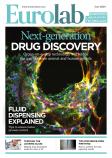Kristin Barrett reports on a decade of success in recycling lab and cleanroom PPE
The pandemic has led to a dramatic increase in single-use personal protective equipment (PPE). Approximately 3.4 million single-use face masks or face shields are now discarded daily and 75% of used masks are likely to end up in landfills or seas.
In addition to this, the average cleanroom worker uses 3.5 pairs of gloves per day. That equals 2,024 gloves per worker, per year – or 10kg of gloves per worker, per year. If a worker is double-gloving, the amount is even higher – 20kg of gloves per worker, per year.
Apparel also makes up a significant amount of lab and cleanroom waste. A single cleanroom facility with 100 workers generates approximately 29 metric tonnes of apparel per year and the average worker generates 290kg of waste per year. Figure 1 provides more details on the impact of single-use apparel.
The good news
Many labs and cleanrooms have embraced PPE recycling through an innovative service known as the RightCycle programme, which gives used nitrile gloves and single use apparel a second life as flowerpots, lawn furniture, plastic shelving and other products.
Launched by Kimberly-Clark Professional in 2011, the RightCycle programme is the first manufacturer-led programme to turn previously hard-to-recycle items into new consumer goods. When the company created the programme it began with a simple question: ‘how can we help our customers divert PPE from the landfill and transform it into something new and useful?’
Ten years later, the service has helped divert over 1,400 metric tonnes of waste for more than 800 customers. At the end of 2019, the School of Chemistry at Edinburgh University reached a major milestone, having collected one million pairs of disposable gloves – amounting to 15 tonnes of waste – equivalent to two full-grown elephants.
The programme’s success is matched by its simplicity and ease of use. Customers collect used items in bins or cardboard containers. The items are then shipped to recycling facilities where they are sorted and processed into pellets and then moulded into new products. Kimberly-Clark Professional provides quarterly and annual reports on waste diversion metrics so customers can track their progress and we recognise customers for reducing their environmental impact. Figure 2 shows an illustration of the process and how the programme works.
In recent years, labs and cleanrooms have been pretty successful at recycling primary commodities such as cardboard, paper, plastic, glass and aluminium. But to get to a higher level of diversion and potentially reach zero waste, secondary commodities, such as PPE, must also be diverted from landfills.
Through the RightCycle programme, labs and cleanrooms can: reach their sustainability goals; support zero waste to landfill initiatives; reduce waste disposal costs; and protect the planet for future generations.
Together with its customers, Kimberly-Clark Professional has made a tremendous impact on the environment, on company sustainability practices and on people in need. And with the increase in mask and glove use due to the pandemic, PPE recycling is more important now than ever. The company plans to continue its efforts for the next decade and beyond – to reduce dependency on the world’s natural resources to leave more for the future, for our children, the planet and for business.
Programme details
The RightCycle programme is currently available in the UK, Ireland, Germany, France, Belgium, Austria and Spain and is open to all companies that use or want to use Kimtech branded apparel items and nitrile gloves in non-hazardous applications.
Kristin Barrett is with Kimberly-Clark Professional









